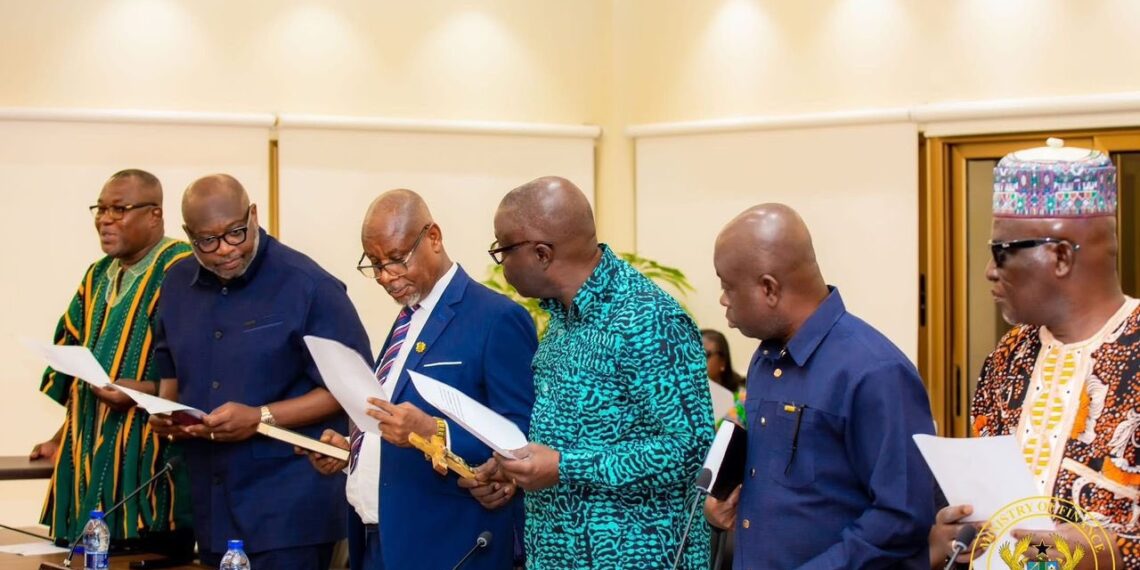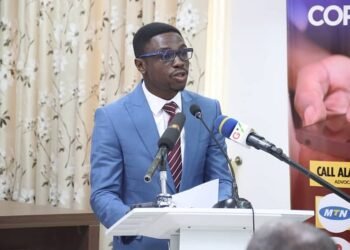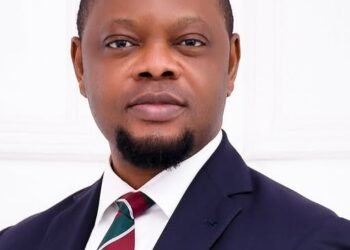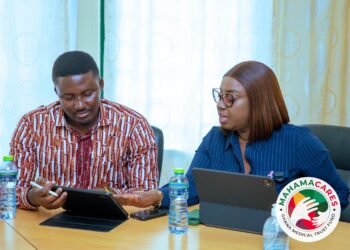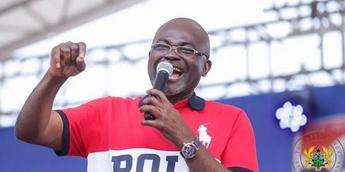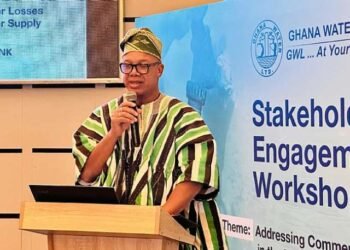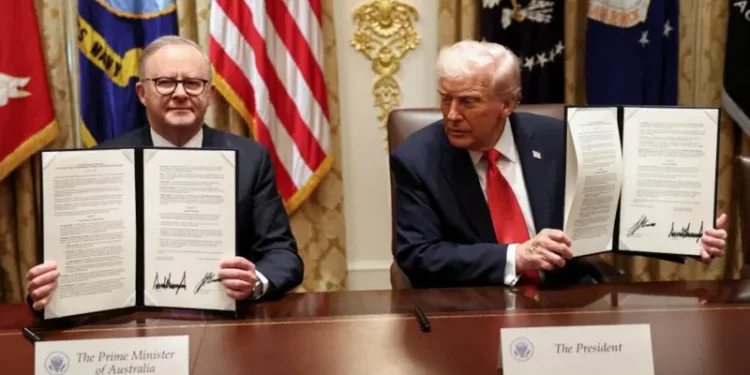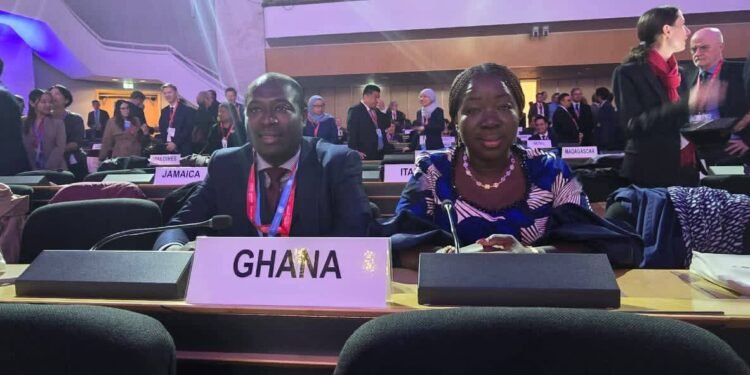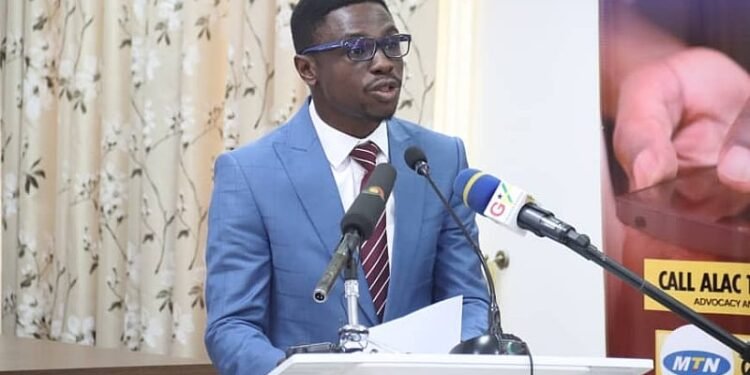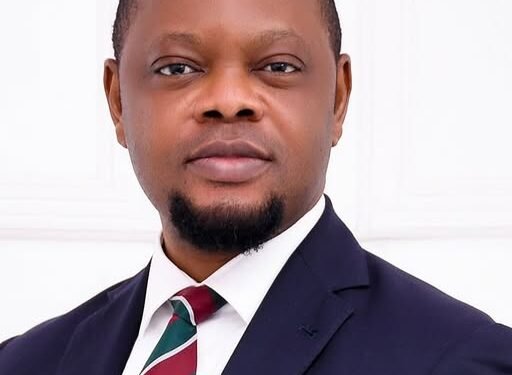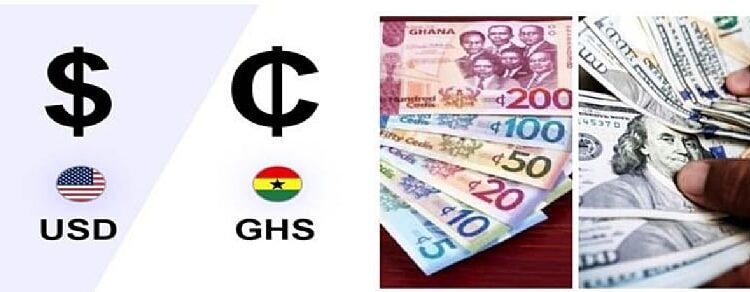A new eleven-member board of directors for the Ghana Cocoa Board (COCOBOD) has been inaugurated, amid calls for an urgent revival of the country’s struggling cocoa sector.
The ceremony, held at the Ministry of Finance, brought together high-ranking officials, stakeholders, and appointees who now bear the responsibility of restoring Ghana’s most iconic cash crop to its former glory.
The board, chaired by Dr. Samuel Ofosu Ampofo, includes Minister for Finance Dr. Cassiel Ato Forson, Governor of the Bank of Ghana Dr. Johnson Asiama, COCOBOD Chief Executive Randy Abbey, Alhaji Alhassan Kobina Ghansah, and Vincent Oppong Asamoah.
It also includes Deputy Minister for Trade Samson Ahi, Deputy Minister for Agriculture John Dumelo, Alhaji Alhassan Bukari, Nana Charles Owusu, and Eric Turkson. The inauguration was led by Energy Minister John Jinapor, who also serves as the Alternate Minister for Finance.
“In his remarks, Hon. Jinapor congratulated the new board members but expressed grave concern over the current state of COCOBOD. He noted that while the institution was once a shining symbol of Ghana’s economic strength, recent years have seen a worrying decline.
“He noted that crop production, which previously peaked at 1 million metric tonnes, has slumped to about 500,000 metric tonnes”
Ministry Of Finance
The Energy Minister did not shy away from describing the current state of COCOBOD as a national concern, stating that the rapid decline in production must be treated as a strategic emergency.
Despite the grim statistics, he said the calibre of the newly constituted board gave reason for optimism, as they possessed the “expertise and integrity to restore COCOBOD.”
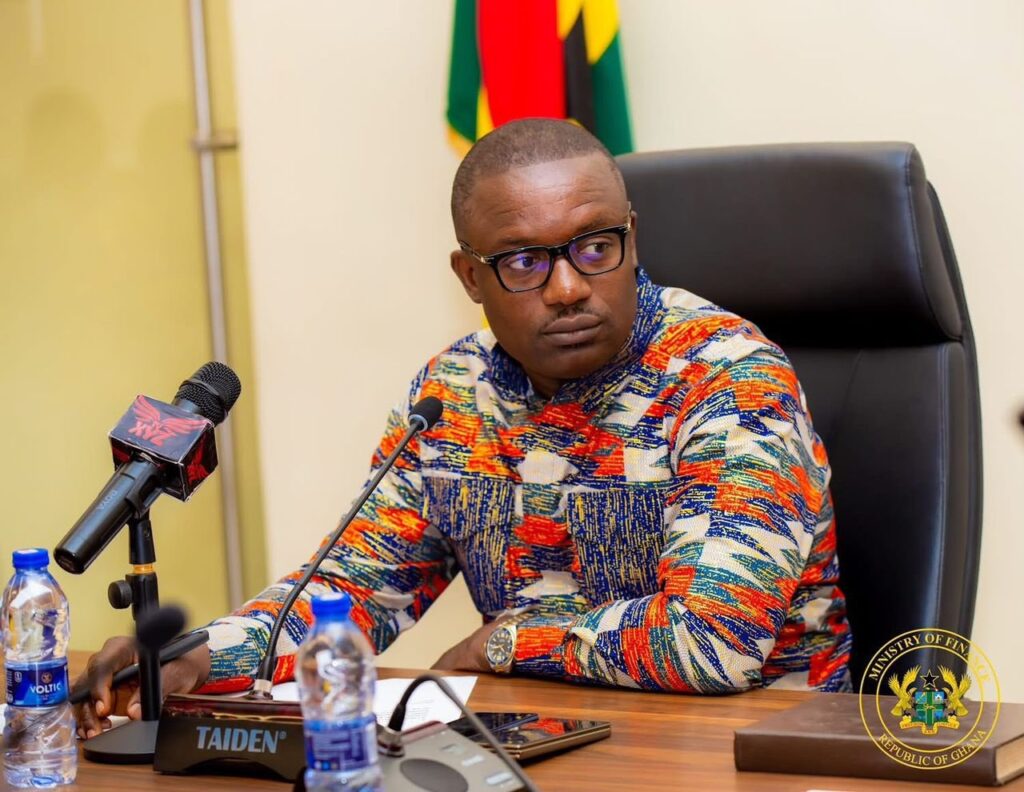
A New Approach
Dr. Cassiel Ato Forson, in his address, reflected on his previous tenure as a COCOBOD board member, describing his return as an opportunity to correct the course.
He acknowledged the government’s deliberate effort to ensure institutional accountability by requiring the inclusion of both the Finance Minister and the Bank of Ghana Governor on the board.
“Dr. Forson underscored the enduring importance of cocoa to Ghana’s economy, describing it as the ‘jewel of the economy,’ and lamented the massive mismanagement of COCOBOD in recent years”
Ministry Of Finance
The Finance Minister also announced government plans to reclaim the country’s leading position in global cocoa production through new plantation investments.
He revealed that the state would acquire approximately 200 hectares of land to set up cocoa plantations and gradually push production back to the one-million-metric-tonne mark.
He charged the board to act swiftly in combating the spread of “diseased cocoa trees,” especially in the Western Region, where significant farms remain affected. He pledged the full backing of the Finance Ministry in whatever “structural reforms” COCOBOD may require to execute its renewed mandate.
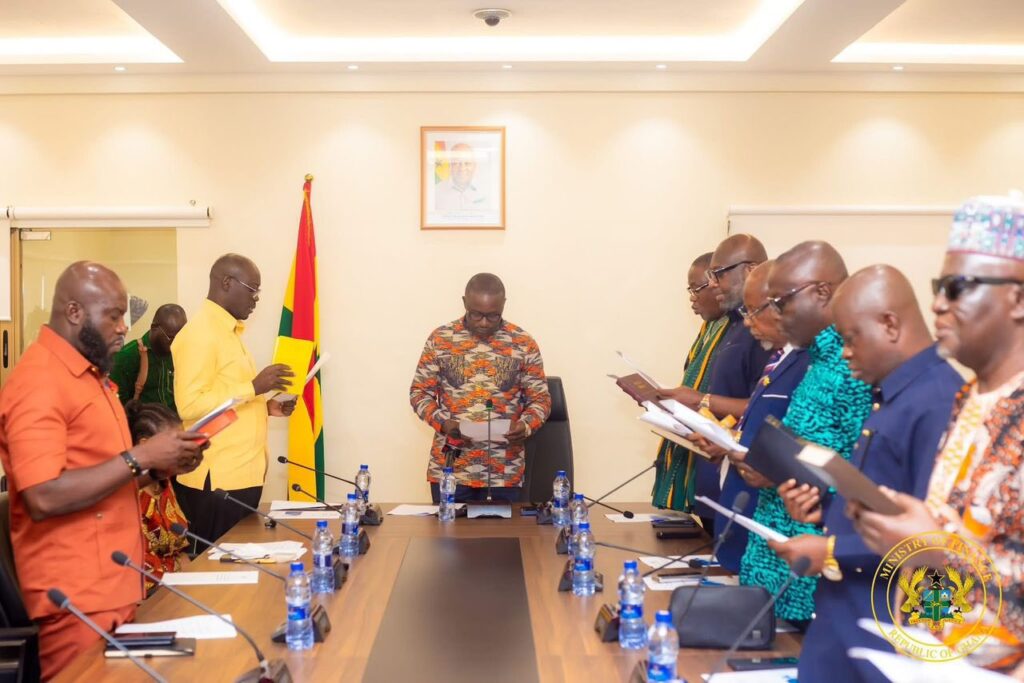
Dr. Samuel Ofosu Ampofo, the newly appointed Chairman of the COCOBOD Board, expressed his gratitude to President Mahama for the confidence reposed in the team. He noted that the appointment was not just an honour, but a weighty responsibility.
“He promised to ‘reset, retool, and reimagine’ COCOBOD to restore it as a pivotal institution in Ghana’s economy. He urged members of the political class to lead by example by actively engaging in farming to inspire the youth”
Ministry of Finance
He assured stakeholders that the new board would lead a results-driven agenda aimed at “revitalising the cocoa sector,” and emphasised the critical role of leadership in shaping public confidence.
The tone of the inauguration ceremony reflected both urgency and commitment, with the nation’s cocoa heritage now squarely in the hands of the new board. With Ghana’s cocoa production halved and concerns about global competitiveness growing, the expectations on the board are immense.
The presence of senior government officials and high-level policymakers on the board suggests that the country’s new administration is placing cocoa sector recovery at the heart of its economic policy.
As the new board sets to work, the country watches closely to see whether this team can reverse years of mismanagement and once again make COCOBOD the backbone of Ghana’s agricultural economy.
READ MORE: Gabon’s Ousted President Relocated To Angola



